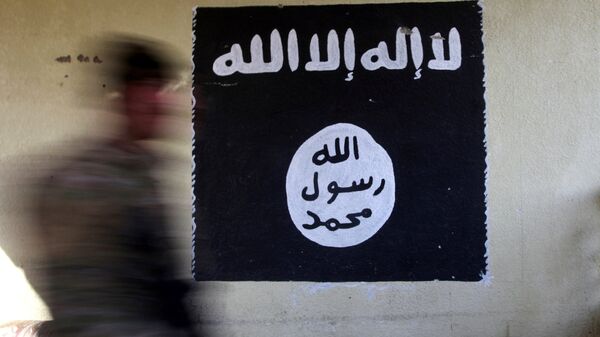As the group loses territory, revenue sources and its structure, we can expect them to step-up their efforts to launch terror attacks in the Middle East, and the western world.
Dr. Anne Speckhard, director of the International Center for the Study of Violent Extremism (ICSVE) and adjunct associate professor at Georgetown University, provided insight, and a more detailed look at the many key and contemporary issues on the topic of Daesh' threat to Europe and the US.
"The International Center for the Study of Violent Extremism (ICSVE), which I direct, has 16 researchers all working on different aspects of researching and trying to prevent and intervene in violent extremism. We train practitioners, police, intel, psychologists, teachers and prison workers on how groups like ISIS [Daesh] recruit, operate. We also advise our partners how to disrupt, prevent and intervene in ISIS' propagandizing and recruitment. Our Breaking the ISIS Brand — the ISIS Defectors Counter-Narrative Project involves interviewing ISIS defectors, prisoners, and returnees, mostly on video, who tell us why they joined, what they experienced inside ISIS, why and how they quit (if they did) and any advice to others thinking about joining," Dr. Speckhard told Sputnik.
"We have interviewed 62 ISIS defectors, returnees and prisoners from around the world to date. We subtitle our video clips aiming to have them available in the 21 languages ISIS recruits in to disrupt, prevent and intervene in ISIS' online and face-to-face recruitment process. We also give them titles and openers that make them look like ISIS video clips in order to potentially capture the attention of those already consuming ISIS material, so they get another side of the story-and perhaps, do not go along the terrorist trajectory."
"We also have experts who track ISIS on Telegram, Twitter, Facebook, etc. to gather more useful information about the organization's operations. Focus groups test our video clips with vulnerable populations in over ten countries and four continents with good success," Dr. Speckhard told Sputnik.
As the group loses its resources and returns to functioning more like a conventional terrorist group, they are likely to send some of their members back home to carry out attacks. This poses a crucial challenge to Europe's and the US' vetting infrastructure, and security forces.
The threat of terrorist attacks from domestic jihadists, who potentially may carry out a lone wolf attack which requires very little planning, is likely to persist long after the eradication of Daesh' caliphate in Syria and Iraq.
Closer cooperation between law enforcement agencies and local religious bodies is required to identify potential attackers early on, as well as facilitating better integration.
"All terrorism stems from real and perceived grievances that individuals and societies face — problems that terrorist groups name, frame and then offer violent solutions to. We try to derail that process. We can also address real grievances in meaningful ways and work towards providing fair and good governance, dignity, security and purpose to people in countries from which foreign fighters have been leaving. On the community level we can thwart lone wolf terrorism by winning the confidence of the community, as there are often signs and leakages about imminent attacks that family and community members recognize, but don't know how to address. We need to have hotlines and rapid response teams that are not just punitive law enforcement responses, to prevent attacks," Dr. Speckhard said.
"Shannon Conley, a Denver teen who attempted to join ISIS was for instance visited and warned by the FBI multiple times before attempting to board a plane to join them. What if a trained professional had worked with her and her family to disrupt how hypnotized she had become by violent extremist groups? She would likely not be now sitting in a super max prison with her future destroyed… Same with Omar Mateen who attacked the Orlando nightclub. He was on an FBI watch list for some time and then fell off. What if someone had worked with him, addressing what seems to have been his self-hatred and social stigma over him apparently being gay, which seems to have led him to attack a gay club and kill what he hated in himself?" Dr. Speckhard told Sputnik.
Some European nations, such as France, have witnessed several terror attacks since Daesh' rise to prominence in 2014, while others have escaped without any significant incident. There has also been sizable variances in the number of citizens traveling to Syria and Iraq from different countries.
When asked why some countries were suffering from terrorism more than others, Dr. Speckhard said: "Because of first, second and third generation Muslim immigrant communities that do not feel a place in society, and therefore resonate to the messages of terrorist groups. France and Belgium both have many such persons, and we have seen many attacks in these countries. Harry Sarfo told NYT Rukmini Callimachi that when the ISIS emir looked for French cadres to return to attack at home, they found no shortage of willing volunteers, whereas other European countries had far less willing volunteers — that's a chilling statement."
The threat of terrorism on European and American soil is what triggered the US-led coalition against Daesh in Syria and Iraq a few years ago.
The campaign has helped roll-back Daesh, but an end to their caliphate could potentially see more terrorist attacks, as the group has to adopt its strategy.
"Ultimately losing territory and cadres will decrease their ability to mount huge attacks, but as the caliphate shrinks, they will use returnees, and others they can entice into homegrown attackers, to attack as virulently as possible to demonstrate they are still active and well," Dr. Speckhard said.
The watered-down version of President Trump's travel ban recently came into effect, and has been received relatively well by the US public. The travel ban is aimed at improving US national security by preventing migrants from high-risk countries from entering the US.
The effectiveness of such a policy is questionable, with some arguing that it will further disenfranchise Muslims, and potentially push them down the path of violent extremism.
"I think we vet visas pretty well, so I think the travel ban attempts to solve an issue that doesn't exist. It turns a lot of Muslims and Arabs against us as they feel singled out. There are security concerns elsewhere that are as serious-visa waivers from Europe for instance where there are now returning foreign fighters and highly radicalized individuals who can conceivably — if not flagged by their own governments as security concerns — hop on a plane and enter the US where it's easy to buy guns and mount a Nairobi style attack," Dr. Speckhard said.
"For me we need to be doubling down on our efforts to eradicate the digital caliphate now, breaking the ISIS brand which our project does with counter-narratives from actual ISIS insiders, and providing credible alternative messages, and stopping the digital caliphate from operating on Facebook, YouTube and all the other social media sites.
"I can't understand why our government is instituting policies that do little good, as oppose to protecting vulnerable Americans from the poisonous ideas of ISIS, and other radical groups," Dr. Speckhard concluded.
The views expressed in this article are solely those of the author and do not necessarily reflect the official position of Sputnik.



